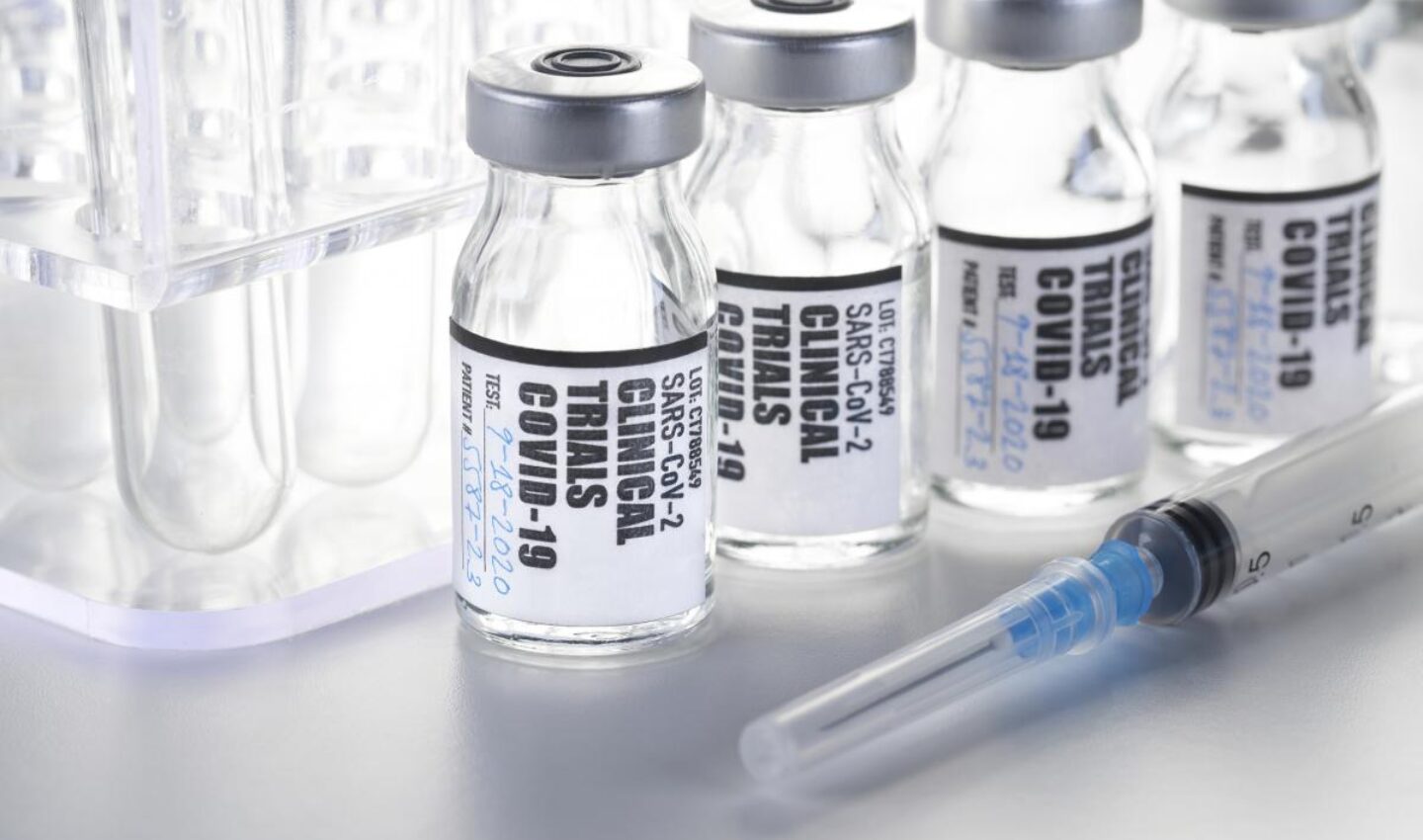How we came to this moment
In March 2020, when the World Health Organization (WHO) declared a global coronavirus pandemic, the world as we know it changed, perhaps forever. Since then, there has been tremendous social and economic disruption, with schools, businesses, and ambulatory care services shuttered to help slow the spread of the virus. As of September 2020, there have been more than 33 million cases in more than 200 countries, resulting in more than 1,000,0001 deaths. With more than 200,000 in the United States alone, COVID-19 has become the country’s third-leading cause of death behind heart disease and cancer.2
Scientists worldwide have worked furiously to keep pace with the rapid spread of the coronavirus, developing new investigational drugs and vaccines and repurposing old therapies. New public/private partnerships among federal and international agencies, representatives from academia as well as biopharmaceutical companies have emerged to share data and fast-track research in four focus areas: (1) developing a collaborative, streamlined forum to identify preclinical treatments, (2) accelerating clinical testing of the most promising vaccines and treatments, (3) improving clinical trial capacity and effectiveness, and (4) accelerating the evaluation of vaccine candidates to enable rapid authorization or approval.3 One such partnership was Operation Warp Speed (OWS), which was announced in May 2020. The goal for OWS is to deliver 300 million doses of a COVID-19 vaccine by January 2021.4
In just six months, these extraordinary efforts have resulted in more than 200 vaccine candidates and more than 300 treatments registered as under investigation for COVID-19.5 From these, only a handful will enter human trials and potentially gain Food and Drug Administration (FDA) approval and global market entry.
Exploring every possibility
A few promising areas of development have revolved around a limited number of agents, the first being the use of a broad-spectrum antiviral, remdesivir. Created in the hopes of treating hepatitis C and then tested for the Ebola and Marburg viruses, remdesivir was ineffective against all three.6 However, it received emergency use authorization (EUA) to treat COVID-19 in the U.S. and several other countries in May/June 2020. 8 Although not proven to be a cure, remdesivir has demonstrated its efficacy in reducing recovery time in patients with moderate to severe COVID-19.9,10. Its manufacturer, Gilead, is currently awaiting a decision by the FDA for potential full approval.7,8
In August 2020, the FDA issued another EUA for convalescent plasma agents for hospitalized patients with COVID-19.11 However, the Infectious Diseases Society of America (IDSA) and WHO have held off recommending routine use outside of clinical trials due to a lack of randomized controlled data.12
Other encouraging options include developing various manufactured antibodies for prevention and treatment for COVID-19, with several front runners in phase III trials from AbCellera/Eli Lilly and Regeneron/Roche, with several others close behind.5 These agents offer the hope of immediate immunity if given soon after exposure to the virus, and the disadvantage of high cost and lack of long-term durability. If approved, this class of medication could serve as a bridge to the most highly anticipated agents—vaccines.
Unprecedented speed in vaccine development
Vaccination is the most effective way to prevent infectious diseases. It is responsible for the complete eradication of smallpox and the significant reduction in cases of measles, polio, and tetanus in many parts of the world.13 Unfortunately, a growing number of individuals in the U.S. and Europe are reluctant to receive recommended vaccinations. According to the WHO, vaccine hesitancy is one of the ten leading threats to global health, citing complacency, inconvenience in access, and a lack of confidence as the driving factors. In 2018, data showed that 48 percent of adults who did not receive the influenza vaccine said they opted out because they did not trust the vaccine; 26 percent felt the flu vaccine was ineffective and, therefore, not worth getting.14
So, given the concerns with vaccines that have been available and proven safe and effective for years, what can we expect regarding uptake of an accelerated vaccine for COVID-19? The typical timeline for researching and developing new medications takes an average of ten years, with clinical trials alone taking six to seven years.15 At the current rate of development, an approved COVID-19 vaccine would be the fastest ever developed with a potential FDA-approval within one year of conception. This accelerated process has resulted in a high degree of anxiety over vaccine safety. To ease concern among the general public, nine pharmaceutical companies with vaccine candidates pledged that they would not seek regulatory approval before the vaccines are proven safe and efficacious in phase III clinical trials.16
Scientists do not know how effective any of the vaccines currently in development will ultimately be, or whether they may require boosters. According to FDA guidance, a vaccine will need to prevent disease or decrease its severity in at least 50 percent of people who receive it. Vaccines that meet this criterion may be eligible for EUA and an Accelerated Approval pathway.17 A handful of contenders in the last phase of clinical trials are racing to gain approval first. These include Moderna, University of Oxford/Astra Zeneca, BioNTech/Pfizer, J & J, Merck, and Novavax. Outside of the United States, Russia has already approved their COVID-19 vaccine, Sputnik V, and several Chinese companies are well into phase III trials.5,18
The enormous challenges of global distribution
Even if all goes as planned and the most optimistic projections come true with a COVID-19 vaccine cleared for use by November 2020, health authorities say that most Americans still won’t be able to get vaccinated until spring or summer of next year at the earliest. The reasons include the fact that many products currently being studied are multiple-dose regimens, which will limit how many people can initially be served. In addition, limited safety and efficacy data may cause prescribers to restrict initial use to high-risk groups. Lastly, distribution and tracking plans are still in the early stages of development.
OWS is on track to accomplish something never done before—research, develop, and produce a vaccine for a new virus in less than a year. Nonetheless, multiple initial failures may result in billions of dollars of waste and unexpected safety concerns as data is tracked post-marketing. It became evident that the safety steps put in place by the FDA for the various stages of clinical trials were a necessary hurdle when Astra Zeneca halted its phase III trial to investigate a severe adverse event in one of its trial participants.19 If OWS is successful, there may be a newfound trust for vaccines among the general public, and some normalcy may return, however slowly, into our everyday lives.
Navigating fast-pace changed
New drugs and vaccinations are being developed at record pace to help fight an aggressive disease on a global scale. It will be important for organizations to stay on top of these rapidly evolving therapies and adjust to the everchanging landscape with simultaneous formulary management and cost containment.
Commonwealth Medicine’s expert Clinical Pharmacy team applies the latest academic research and clinical advancements in real-time to provide customizable solutions, ensuring that your pharmacy benefit program offers clinical integrity, independence and transparency. As part of the University of Massachusetts Medical School, we are uniquely positioned to ensure your pharmacy benefit program represents Patient First clinical excellence.
Please contact us and start a conversation about your organization’s needs.
Clinical Pharmacy Consultant, Clinical Pharmacy Services
References
1. Coronavirus statistics global. Webpage on the Internet. 2020 [cited 2020 Sep 10]. Available from:
https://epidemic-stats.com/coronavirus/.
2. Covid-19 is third leading cause of death in the United States [press release on the Internet]. NY Post.
2020 Aug 18 [cited 2020 Aug 19]. Available from:
https://nypost.com/2020/08/18/covid-19-is-third- leading-cause-of-death-in-the-united-states/.
3. Accelerating Covid-19 therapeutic interventions and vaccines (ACTIV). National Institutes of Health
(NIH). Bethesda (MD). 2020 [cited 2020 Sep 10]. Available from:
https://www.nih.gov/research-training/medical-research-initiatives/activ.
4. Fact Sheet: Explaining Operation Warp Speed [webpage on the Internet]. US Department of Health &
Human Services. 2020 [cited 2020 Sep 10]. Available from:
https://www.hhs.gov/about/news/2020/06/16/fact-sheet-explaining-operation-warp-speed.html.
5. COVID-19 treatment and vaccine tracker. Milken Institute. Webpage on the Internet. 2020 [cited 2020
Sep 6]. Available from: https://covid-19tracker.milkeninstitute.org/.
6. Development of remdesivir. Gilead Sciences, Inc. Foster City (CA). Webpage on the Internet. 2020
[cited 2020 Aug 18]. Available from:
7. FDA authorizes emergency use of Gilead drug remdesivir for Covid-19 patients. WSJ. 2020 May 1
[cited 2020 May 3]. Available from: https://www.wsj.com/articles/fda-authorizes-emergency-use-of- gilead-drug-for-covid-19-patients-11588363751.
8. Gilead seeks US approval for Covid-19 treatment remdesivir [press release on the Internet]. Reuters.
2020 Aug 10 [cited 2020 Aug 11]. Available from: https://www.reuters.com/article/us-health-coronavirus-gilead-sciences-re/gilead-files-u-s-marketing-application-for-remdesivir-idUSKCN2561WY?utm_campaign=pharmalittle&utm_medium=email&_hsmi=93015696&_hsenc=p2ANqtz–1vnQUfQQZ5T6hbDnrqpB_inBDXRSoay8u8XshnLFNJoIOpsPGKaY3uw1NDA77Tm0BfmRd9Dh7As-TqXQDRbR0bEjLqi8paoXxhyyZqIcfWzz–3k&utm_content=93015696&utm_source=hs_email.
9. Gilead boasts of positive remdesivir data on mortality-but their analysis provokes the skeptics [press
release on the Internet]. Endpoint News. 2020 Jul 10 [cited 2020 Jul 15]. Available from: https://endpts.com/gilead-surges-on-another-batch-of-non-randomized-data-this-time-they-say-it-shows-remdesivir-may-improve-mortality/?utm_medium=email&utm_campaign=1011%20Friday%20July%2010%20-%20Gilead%20kicks%20up%20a%20fuss%20on%20remdesivir%20mortality%20claim%20FDA%20guns%20down%20GSKs%20top%20cancer%20drug&utm_content=1011%20Friday%20July%2010%20-%20Gilead%20kicks%20up%20a%20fuss%20on%20remdesivir%20mortality%20claim%20FDA%20guns%20down%20GSKs%20top%20cancer%20drug+CID_68c96126957197c4b8148c99592ca420&utm_source=ENDPOINTS%20emails&utm_term=Gilead%20boasts%20of%20positive%20remdesivir%20data%20on%20mortality%20%20but%20their%20analysis%20provokes%20the%20skeptics.
10. Gilead’s investigational antiviral Veklury (remdesivir) receives U.S. Food and Drug Administration
Emergency Use Authorization for the treatment of patients with moderate COVID-19 [press release on
the Internet]. Gilead. 2020 Aug 28 [cited Aug 31 2020]. Available from: https://www.gilead.com/news-and-press/press-room/press-releases/2020/8/gileads-investigational-antiviral-veklury-remdesivir-receives-us-food-and-drug-administration-emergency-use-authorization-for-the-treatment-of-p.
11. FDA authorizes convalescent plasma for COVID-19 patients [press release on the Internet].
Medpage Today. 2020 Aug 23 [cited 2020 Aug 24]. Available from:
12. Bhimraj A, Morgan RL, Shumaker AH, Lavergne V, Baden L, Chemg V, et al. Infectious Diseases
Society of America Guidelines on the treatment and management of patients with COVID-19. 2020
Apr 13 [cited 2020 Jun 30]. Available from: www.idsociety.org/COVID19guidelines.
13. Whitney CG, Zhou F, Singleton J, Schuchat A, Centers for Disease Control and Prevention (CDC).
Benefits from immunization during the vaccines for children program era – United States, 1994-2013.
MMWR Morb Mortal Wkly Rep. 2014 Apr;63(16):352-5.
14. Elfein J. Vaccine hesitancy in the U.S.- Statistics & facts. Statista. Webpage on the Internet. 2020 Mar
26 [cited 2020 Sep 10]. Available from:
https://www.statista.com/topics/5166/vaccine-hesitancy-in-the-us/.
15. Biopharmaceutical research & development: The process behind new medicines. PhRMA. 2015 [cited
2020 Sep 10]. Available from: http://phrma-docs.phrma.org/sites/default/files/pdf/rd_brochure_022307.pdf#:~:text=As%20a%20result%2C%20the%20process%20for%20researching%20and,alone%20taking%20six%20to%20seven%20years%20on%20average.
16. Companies testing vaccines pledge safety, high standards [press release on the Internet]. AP. 2020
Sep 8 [cited 2020 Sep 9]. Available from: https://apnews.com/91f3c0d94fd9e9bcb645110c7d2e05a0.
17. Development and licensure of vaccines to prevent COVID-19: Guidance for industry. U.S. Food and
Drug Administration. Silver Spring (MD). June 2020 [cited 2020 Sep 10]. Available from: https://www.fda.gov/regulatory-information/search-fda-guidance-documents/development-and-licensure-vaccines-prevent-covid-19.
18. Russia unveils covid vaccine ‘Sputnik V’, claiming breakthrough in global race before final testing
complete [press release on the Internet]. Washington Post. 2020 Aug 11 [cited 2020 Aug 11].
19. Analysts assess fallout after AstraZeneca halts PhIII Covid-19 vaccine dosing to probe a possible
serious adverse event [press release on the Internet]. Endpoint News. 2020 Sep 8 [cited 2020 Sep
9]. Available from: https://endpts.com/a-top-covid-19-vaccine-developer-halts-phiii-dosing-t…


